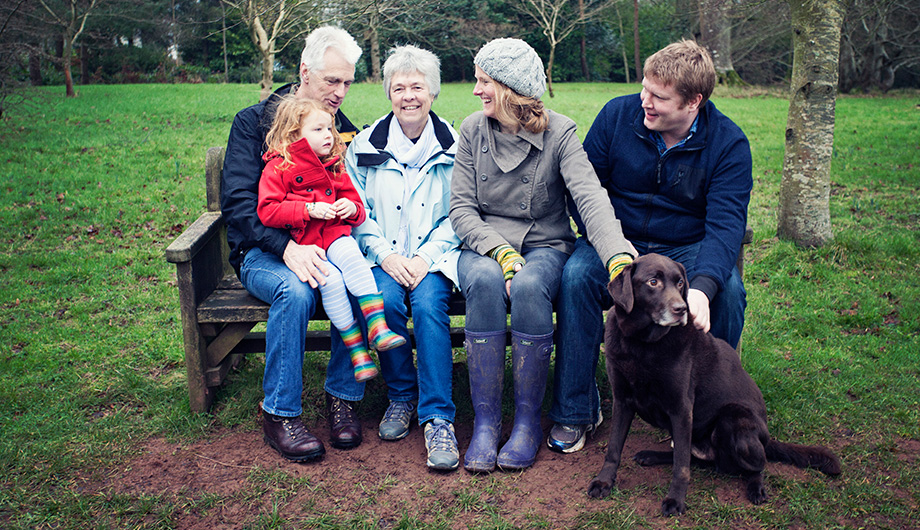Talking about death doesn’t tempt fate. It won’t make it happen sooner. You may be comfortable with the subject or you might have never given it a second thought. Whichever camp you’re in, it’s well worth being aware of your choices. Choices that, if made in advance, can support you to die well in the place you want to be and with peace of mind.
Here are some of the main things you might like to consider.
- Where do you want to die?
Some people feel very strongly about where they’d like to be when they die. However, it’s not always possible to honour those wishes – for example, when it’s no longer realistic to look after someone at home. That’s why it’s a good idea to have a discussion with those close to you, and healthcare professionals, about what the best solution could be for everyone. Sometimes it’s a case of telling people what you would like to be happening when you die, for example to see nature from a window, to have loved ones nearby, a pet close to hand, to listen to music. Helping others understand this can mean wherever we die it can feel like the death we had planned.
- Do you want to leave personal video messages, cards or letters for people to open after you’ve died?
Some people find that letters are an easier way to communicate things that are difficult to talk about, or a good way to leave behind important memories for your loved ones. You could even make a ‘When I’m gone box’ of letters, meaningful objects and useful information for your relatives, such as your passwords and National Insurance number. There’s always help to do this should you need assistance.
- Do you have an Advance Care plan so the people who matter know what your final wishes are?
Make sure the people who matter know how you want to be cared for and any other final wishes that you have. These Advance care plans make it easier for your loved ones to make choices on your behalf if they need to, and it’ll help to avoid family disagreements.
You might like to write your preferences down and share them with those closest to you. The NHS website has lots of useful information on planning for your death, including how to let your loved ones know about your wishes.
- Have you made a Will?
Having a professionally written Will helps to protect the ones you love. It sets out your wishes, including:
- Who you want to leave any money, property or valuables to
- Who should look after your children (if they’re under 18)
- Whether you want to be buried or cremated
- What should happen to your pets
- And much more
If you have made a Will, is it up to date? If you’ve recently married or divorced, become a parent or grandparent, lost a spouse or relative, retired or moved house, you may need to update your Will.
Hospiscare’s Will Fortnight sees local solicitors waiving their fees for writing a Will – you can choose to leave a donation to Hospiscare in your Will, but there’s no obligation to do so. Sign up to our newsletter for details of the next Will Fortnight.
- Have you thought about organ donation?
The way we do organ donation in the UK is changing. Depending on which part of the UK you live in, you may be automatically opted in to organ donation. It’s still a good idea to register your wishes via the NHS Organ Donor Register. You can choose what you’d like to donate and change your preferences at any time. The medical team will be happy to talk to you about this.
- What do you want done with any social media accounts you have?
For many of us, social media is a useful way to share photos and news and keep in touch with friends and family. However, we often don’t think about what will happen to our social media accounts after we die.
Facebook offers the opportunity for your page to be ‘memorialised’, creating an online space for people to remember you. You can nominate someone to manage your page. Alternatively, you can choose to have your account deleted after you die. Take a look at Facebook’s guidelines to find out more.
With other social media sites, you might choose to give your passwords to someone you trust who can look after or delete your accounts after your death.
- What do you want to do about funeral arrangements?
Funerals mean different things to different people, so don’t feel pressurised to do things a certain way. There’s also no requirement to hire a funeral director if you’d rather arrange things yourself.
You might like to think about:
- Where you want the funeral to be held
- Whether you want a religious ceremony
- Whether you’d prefer a burial or cremation
- Who you’d like to be invited
- Whether you want people to send flowers or make a donation to charity
- Whether you want people to wear black or not
- What type of coffin you’d prefer. (There are eco-friendly options available if that’s important to you)
- How you want your coffin to be decorated (eg with flowers, mementoes and so on)
- What music you’d like to be played. You could even put together a CD or playlist of music for your loved ones to choose from.
- Is there anything people need to know about before you die?
Are there any other practical concerns people might need to know about after your death, such as life insurance details, the combination to a safe, where you keep your passwords, or even whether your pet has any health problems?





